Mike Kuo (郭正光) wasn’t in Penghu’s Jhenhai Junior High School (鎮海國中) last week to discuss politics; instead he talked about testing water filters in zero gravity and developing sweet-and-sour pork for astronauts.
The former president of the US-based Formosa Association for Public Affairs may be known to Taipei Times readers for his opinion pieces, but Kuo also spends part of his visits to Taiwan talking to students about his 38-year career as a food scientist for NASA.
Kuo joined NASA in 1980, when it was recruiting for food experts for its Space Shuttle program, which launched its first flight in April 1981. His presentation is a fascinating journey from the 1960s, where astronauts munched on dry compressed chicken powder, to the modern day where they can enjoy fresh vegetables and chef-created meals.
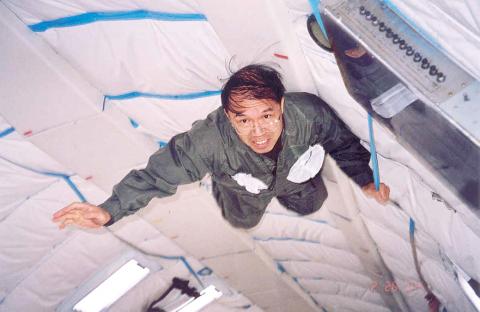
Photo courtesy of Mike Kuo
Although nutrition, such as making up for calcium loss which is faster in space, is the main objective, Kuo says a significant part is to find ways to satisfy the astronauts’ appetites. His team has developed at least 80 types of food and 20 drinks over the years, covering the cuisine of the diverse crew on the International Space Station (ISS).
“For example, someone wanted sweet-and-sour pork, so we freeze dried fried pork and experimented with sugar, vinegar and tomato powder,” Kuo says. “We try to make their dining experience as similar to the conditions on Earth as possible. Eating is one of their main sources of enjoyment up there.”
SPACE FOOD EVOLUTION
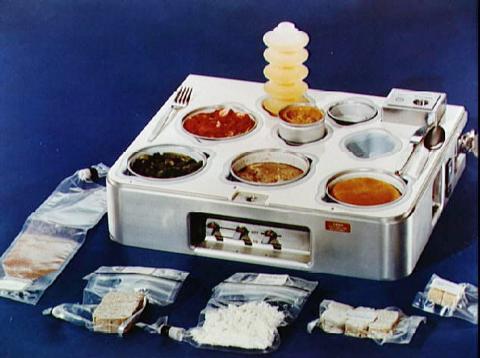
Photo courtesy of Mike Kuo
Space food has come a long way, as Kuo shows photos of how it has evolved over the decades. It’s evident that the food scientists aren’t just trying to simulate food on Earth, but also the dining environment. Instead of just sucking out what looks like baby food from a packet in the early days, Kuo says they want the astronauts to be able to sit down and eat properly.
They even tried using hard plastic containers to resemble bowls at one point, but found it too heavy and bulky.
“It costs US$10,000 to send one pound of material into space,” Kuo says. “We have to minimize what they bring.”
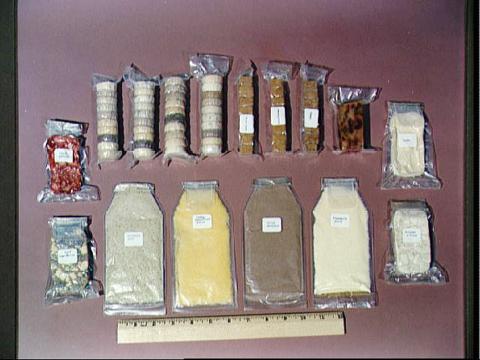
Photo courtesy of Mike Kuo
All food needs to last at least two years. A photo of a standard meal includes Chessmen cookies, kidney beans, a sausage patty, pudding, Life Savers candy and lemonade. The innovations in the field continue, as astronauts can now grow fresh vegetables on board, and in October last year ISS astronauts were able to use 3D bioprinting to create artificial beef.
Kuo says that at first, his team designed strict daily meals for the astronauts to make sure they were getting adequate nutrition. But after finding out that many weren’t following the plan, NASA switched to a bar code system so they could at least track what the astronauts ate and advise accordingly.
Astronauts have reported that their taste buds tend to dull in space, and many reports show that they prefer sharper and spicier foods — evidenced with the immense popularity of Tabasco sauce aboard the ISS. While astronauts can also add salt and pepper water to their food, Kuo says too much salt can increase calcium loss, which is one of the major nutritional issues in zero gravity.
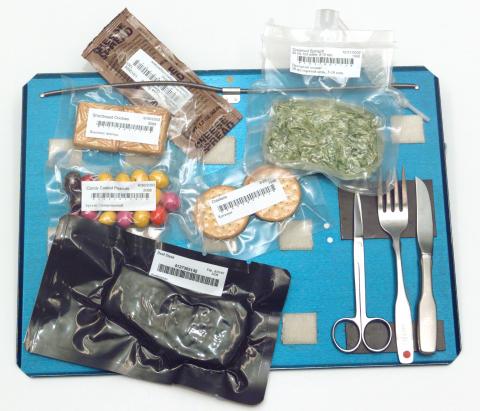
Photo courtesy of Mike Kuo
PRACTICAL ISSUES
Kuo spent at least five years testing ways to reduce calcium loss through diet. His team found that they could simulate space calcium loss conditions on Earth by having people lie down at a certain angle, and paid homeless people to serve as test subjects from four to 26 weeks.
Besides eating less meat and taking osteoporosis medication, they found that there was not much they could do, Kuo says.
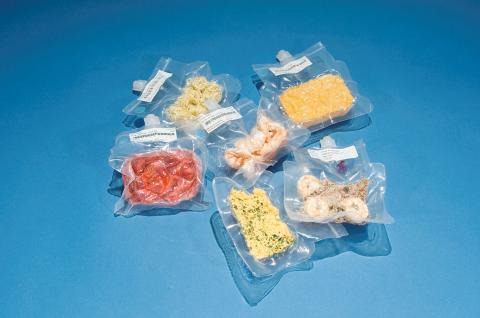
Photo courtesy of Mike Kuo
For the past decade up until his retirement in 2018, Kuo focused on providing a steady source of drinkable water in space. With the end of the Space Shuttle program in 2011, it became more difficult to transport water to astronauts. Plus, the technology was also needed if the US wanted to build long-term space stations on the moon or Mars.
Kuo helped develop a three-step filtration system to purify the astronauts’ urine — currently their technology can recover 80 percent of the water and levels purer than drinking water found on Earth. He shows a picture of two astronauts toasting to their own urine. Interestingly, up until at least 2015, the Russians on the ISS refused to drink their own urine, using a different filtration system that dealt with other wastewater.
The most exciting opportunity for Kuo brought by this project was the chance to experience zero gravity, since the filtration machines needed to be tested in space conditions. The scientists would get into a plane that would launch at a steep angle and then abruptly level. This creates a 25 to 30 second window of weightlessness that Kuo had to test his machines. The plane could repeat this maneuver up to 40 times a day.
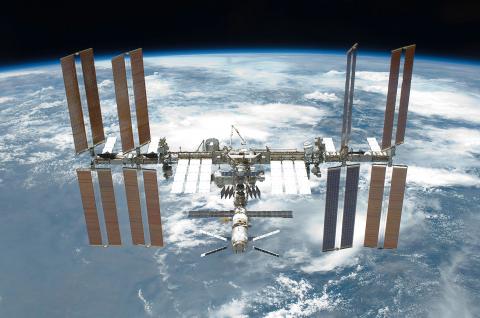
Photo courtesy of Wikimedia Commons
“I’m very proud of having the chance to do this,” Kuo says, adding that while he had two vomit bags on him during the process, he never threw up. “I don’t think many Taiwanese have experienced zero gravity.”

The primaries for this year’s nine-in-one local elections in November began early in this election cycle, starting last autumn. The local press has been full of tales of intrigue, betrayal, infighting and drama going back to the summer of 2024. This is not widely covered in the English-language press, and the nine-in-one elections are not well understood. The nine-in-one elections refer to the nine levels of local governments that go to the ballot, from the neighborhood and village borough chief level on up to the city mayor and county commissioner level. The main focus is on the 22 special municipality

The People’s Republic of China (PRC) invaded Vietnam in 1979, following a year of increasingly tense relations between the two states. Beijing viewed Vietnam’s close relations with Soviet Russia as a threat. One of the pretexts it used was the alleged mistreatment of the ethnic Chinese in Vietnam. Tension between the ethnic Chinese and governments in Vietnam had been ongoing for decades. The French used to play off the Vietnamese against the Chinese as a divide-and-rule strategy. The Saigon government in 1956 compelled all Vietnam-born Chinese to adopt Vietnamese citizenship. It also banned them from 11 trades they had previously

Hsu Pu-liao (許不了) never lived to see the premiere of his most successful film, The Clown and the Swan (小丑與天鵝, 1985). The movie, which starred Hsu, the “Taiwanese Charlie Chaplin,” outgrossed Jackie Chan’s Heart of Dragon (龍的心), earning NT$9.2 million at the local box office. Forty years after its premiere, the film has become the Taiwan Film and Audiovisual Institute’s (TFAI) 100th restoration. “It is the only one of Hsu’s films whose original negative survived,” says director Kevin Chu (朱延平), one of Taiwan’s most commercially successful

Jan. 12 to Jan. 18 At the start of an Indigenous heritage tour of Beitou District (北投) in Taipei, I was handed a sheet of paper titled Ritual Song for the Various Peoples of Tamsui (淡水各社祭祀歌). The lyrics were in Chinese with no literal meaning, accompanied by romanized pronunciation that sounded closer to Hoklo (commonly known as Taiwanese) than any Indigenous language. The translation explained that the song offered food and drink to one’s ancestors and wished for a bountiful harvest and deer hunting season. The program moved through sites related to the Ketagalan, a collective term for the